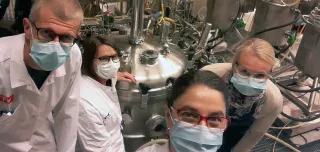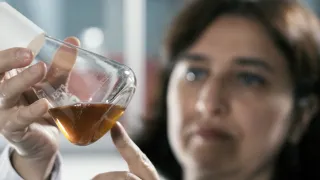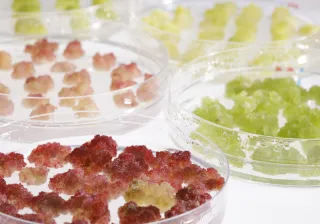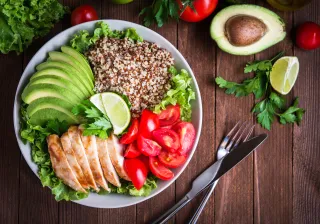Plant proteins and biotechnically produced proteins have gained in popularity to replace meat with sustainable and healthy alternatives. To break through to a mass market, however, requires meat-like texture and taste. Biotechnically produced fats could meet this challenge.
A good quality meat contains 20% protein and 10% fat, whereas the rest is water. Until now scientists primarily concentrated on proteins when seeking alternatives to meat. It is, however, not always enough to take plant-based or cultured proteins and mix them with plant-based oils and fats.
“In meat the texture, juiciness and taste come from fats rather than proteins. So, to achieve a meat-like experience, we need to figure out what kind of fats are needed and how we can produce them sustainably,” says Nesli Sözer, research professor in Smart and Sustainable Food Production at VTT. She points out that a meat-like experience is a prerequisite for consumers to do substantial dietary shift from animal-based products to more sustainable alternatives.
The VTT research team takes side streams from the agrofood industry and converts them into new types of lipids with the help of yeasts.
“While alternative proteins have been researched extensively, the research on lipid production is still at an early stage. So, we applied for an annual early-stage VTT iBEX programme, which gives selected VTT research teams one year to identify, address and solve a critical global challenge. We called it ELAIS, naming it after the Greek goddess of oil.”
Beating palm oil with a multidisciplinary team
The ELAIS team started the project by defining which properties were required of fats used in meat alternatives and what kind of molecule structures could produce these properties. A compromise was clearly needed between healthy unsaturated fatty acids common in many plant oils and unhealthy saturated fatty acids to give taste and texture to meats.
“Palm oil is quite popular in plant-based meat alternatives particularly because it’s high in saturated fats, but therefore it’s also unhealthy. Besides, it’s unsustainable. So, palm oil is not an option for the future,” Sözer says.
The following step in the project was to produce fats with the desired composition. A common food-grade yeast was modified to be able to efficiently convert sugars into the right type of fats through fermentation. This was done by VTT’s scientists who are specialised in microbial production of lipids, industrial biotechnology and food design.
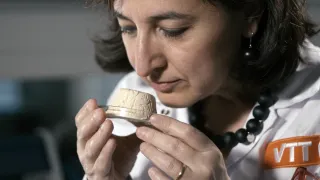
Tasting, testing, scaling and sparring
In December 2021, the taste, smell and texture of the newly made fats will be tested by VTT’s sensory scientists, while the rest of the team will concentrate on testing the scalability of the process.
“We will probably end up fine-tuning the fat acid composition in the future, but we already know that our yeast was able to produce lipids with a 20%-yield, which is very good,” Sözer says.
Sözer thinks microbial fats will open up new business opportunities and eventually enable a large-scale dietary shift from animal-based foods to sustainable plant-based and cultured foods. Future business options were previously considered during the project, as is the way in the VTT iBEX programme.
“We had sparring sessions with specialists from the VTT LaunchPad incubator and even some outside venture capitalists. It was an intense year, but worth it. This is a hot topic for both research and industry – and the world.”
Photos by the ELAIS Team and Photino Science / Pentti Pällijeff
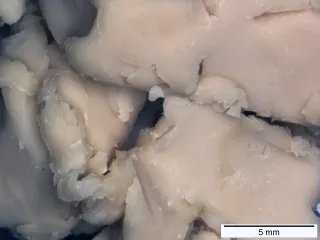
ELAIS team
ELAIS team members from the left: Kari Koivuranta, Anneli Ritala, Nesli Sözer and Laura Salusjärvi from VTT.
